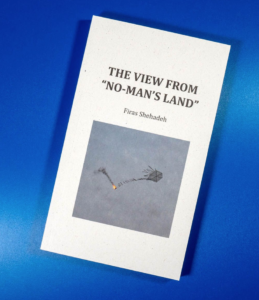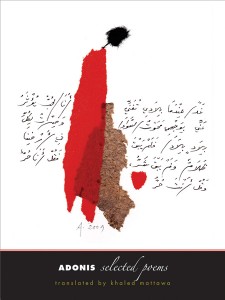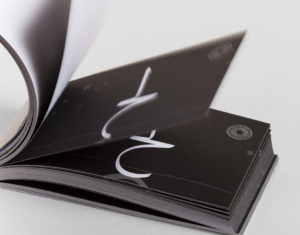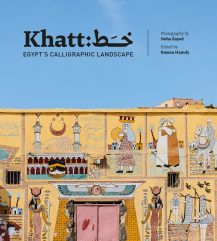Pages: 204
Publisher: Well Gedacht, 2020
Language: English, Arabic, German
Dimensions: 10.4 x 17.6 cm
“Since 2013, Firas Shehadeh‘s conceptual practice has been preoccupied with understanding the human condition through post-internet aesthetics, a tactic calculated towards a larger strategy of tackling the many themes mirrored by our new millennia. The internet and its cultures, video games, virtual communities, and various types of images are key mediums in his work, which helps the artist avoid material limitations and highlights the impact internet life is increasingly having on our offline lives.
Yet if one can trace a unity in Shehadeh’s work, one would find that it’s mainly concerned with images, not purely as form, but for what it absorbs from today’s political realities, conveyed by way of not-so-innocent silliness or abstraction. That is not to say that he deals with images as if they are inherently political. On the contrary, as a puppeteer controlling his marionettes with agility, Shehadeh takes such images and carefully reassembles them in front of us to subtly narrate their stories of origin and the meaning they evolved to carry. By relying on a combination of irony, tragedy, and delicate hopefulness, he ultimately highlights the bitter contradictions of today’s world.
One can easily detect some of Shehadeh’s political interests: history, technology, and aesthetics. He connects all these in today’s Online, the direct descendant from yesterday’s internet. Today’s algorithmically-driven Online is akin to predestination, loaded with ready-made scenarios where you’re trapped in a time loop like a sick joke. Original moves are calculated, preconfigured, and repeated every day; a Punxsutawney-hell from hell where one disaster leads to another. Still, they’re expected, welcomed, normalized, in a made-up history where irony’s reserve has drained to the very last drop.
In The View from “No-Man’s Land,” Shehadeh documents the year 2020 by using online culture’s main currency—memes—to tell stories of crashes, depressions, and violence caused by acceleration and the hyper technologies of control. His position as a Palestinian artist permits him to tell such stories with ease and cleverness. Yet unlike his subjects, he doesn’t convey a post-ironic attitude; his awareness is a tool to decipher post-irony, exposing its contradictions as if fighting fire with fire. That is highlighted best in the book’s cover; a kite strapped with a Molotov cocktail. The contra-drone of the oppressed. A direct, ironic answer to the oppressor’s hyper-tech arsenal.
This book and its artifacts function as a memory theater for an era that doesn’t want to leave, trying to outwit us by employing elements from the past. All the versos and rectos speak of the same story, reiterating after Carl “CJ” Johnson, its undeclared Angelus Novus, “Oh shit, here we go again.””
Yazan S. Ashqar
Writer, editor, and translator, New York City





